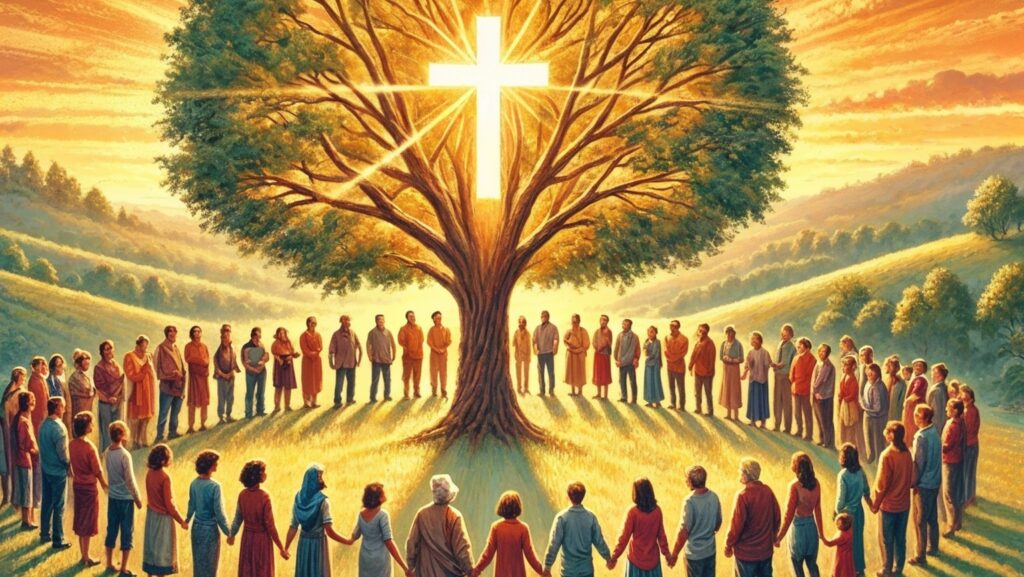Life can leave us feeling fractured—whether from the weight of personal failures, the sting of broken relationships, or the unrelenting trials of daily existence. In these moments, the concept of restoration becomes a lifeline, a promise that what is broken can be made whole again. But in God’s hands, restoration is not merely about returning to what once was; it’s about transformation—becoming something even greater than before. Restoration is a divine process that reflects God’s love, grace, and power to redeem every aspect of our lives.
Let’s explore the richness of God’s restoration and how it can renew our hearts, minds, and lives.
The Depth of Biblical Restoration
In everyday language, restoration often means repairing or returning something to its original state—like fixing a broken chair or restoring an old painting. But biblical restoration is far more profound. It means receiving back more than what was lost, often in ways that exceed our expectations. This divine principle is beautifully illustrated in Joel 2:25-26, where God declares: “I will restore to you the years that the swarming locust has eaten… You shall eat in plenty and be satisfied.” Here, God promises not only to replace what was taken but to bless His people abundantly beyond their losses.
Restoration in Scripture touches every area of life:
- Spiritual Restoration: Reconciliation with God through repentance and faith (Psalm 51:12).
- Emotional Restoration: Healing from grief, trauma, and despair (Isaiah 61:3).
- Relational Restoration: Rebuilding trust and unity in broken relationships (Galatians 6:1).
- Physical Restoration: Renewal of health and provision for material needs (Jeremiah 30:17).
- Eternal Restoration: The ultimate renewal of all creation when Christ returns (Revelation 21:5).
God’s restoration is holistic—it encompasses every dimension of our being and life circumstances. It is not limited by human understanding or resources but flows from His infinite power and love.
God as the Master Restorer
From Genesis to Revelation, the Bible paints a picture of God as the ultimate Restorer. He is not content to leave His creation in its fallen state but actively works to renew and redeem it.
- In Creation
When humanity fell into sin, God immediately set a plan into motion to restore us to Himself (Genesis 3:15). This plan culminates in Jesus Christ, whose life, death, and resurrection provide the foundation for all restoration. - Through Jesus’ Ministry
Jesus’ earthly ministry was marked by acts of restoration—healing the sick, forgiving sins, raising the dead, and offering hope to the marginalized. In Mark 5:34, He tells a woman healed of her bleeding disorder: “Daughter, your faith has made you well; go in peace and be healed of your disease.” His miracles were not just physical but deeply spiritual, restoring dignity and purpose to those He touched. - In Our Lives Today
Restoration is not just a historical or future promise; it is an ongoing reality for believers. Psalm 23:3 reminds us that “He restores my soul.” This daily renewal strengthens us to face life’s challenges with courage and hope. - In Eternity
The story of restoration reaches its climax in Revelation 21:5 when God declares: “Behold, I am making all things new.” This ultimate restoration will erase every tear, heal every wound, and bring eternal joy.
How Does God Restore?
Restoration often begins in places of brokenness. It requires humility—a recognition that we cannot fix ourselves—and trust in God’s ability to redeem even our darkest moments. Here are some ways God brings restoration into our lives:
1. Spiritual Renewal
Our relationship with God is at the heart of restoration. When we stray from Him or feel distant due to sin or doubt, He invites us back with open arms. Ezekiel 36:26 says: “I will give you a new heart and put a new spirit in you.” This renewal transforms our inner being and aligns us with His will.
2. Emotional Healing
Life’s wounds—grief, betrayal, disappointment—can leave lasting scars. But Psalm 147:3 assures us: “He heals the brokenhearted and binds up their wounds.” In His presence, we find comfort that surpasses human understanding.
3. Restored Joy
David’s prayer in Psalm 51:12 captures this beautifully: “Restore to me the joy of your salvation.” When we allow God to work within us, He replaces despair with hope and sorrow with gladness.
4. Renewed Purpose
Even when we feel like failures or believe we’ve disqualified ourselves from being used by God, He restores us for His glory. Jeremiah 29:11 reminds us that His plans for us are filled with hope and purpose.
5. Physical Provision
While spiritual restoration is paramount, God also cares for our physical needs. Whether it’s restoring health (Jeremiah 30:17) or providing material blessings (Philippians 4:19), He demonstrates His faithfulness in tangible ways.\
Our Role in Restoration
While restoration is ultimately God’s work, we are invited to participate in the process:
- Seek Him First
Restoration begins when we turn our hearts toward God. Jeremiah 29:13 promises: “You will seek me and find me when you seek me with all your heart.” Spend time in prayer and Scripture, allowing Him to guide you. - Surrender Your Burdens
Let go of past hurts and failures by laying them at Jesus’ feet (Matthew 11:28-30). Trust that He can transform even your deepest pain into something beautiful. - Embrace Community
Surround yourself with fellow believers who can encourage you on your journey toward wholeness (Galatians 6:2). - Be Patient
Restoration often takes time—it is a process rather than an instant fix. Trust that God is working behind the scenes even when you cannot see immediate results.
Restoration Beyond Ourselves
God doesn’t just restore individuals; He restores communities and even creation itself:
- Communities
Acts of forgiveness and reconciliation within families or churches reflect God’s restorative power at work among His people (Galatians 6:1). - Creation
Romans 8:19-21 describes creation groaning for renewal—a promise fulfilled when Christ returns to make all things new (Revelation 21).
As recipients of His grace, we are called to extend restoration to others through acts of kindness, forgiveness, and service.
Read More About This Content
Daily Devotional: Peacemaking with Purpose: Bringing God’s Peace to a Broken World
Quote of the Day: “The purpose God has for you is stronger than any problem you are facing”
A Final Word on Restoration
No matter where you are today—whether you feel whole or broken—know this truth: God is not finished with you yet. Restoration isn’t just something He does; it’s part of who He is. The Master Restorer sees beyond your current struggles to the masterpiece He created you to be.
As you reflect on this word—restoration—ask yourself these questions:
- What areas of my life need restoring?
- How can I invite God into those areas?
- In what ways can I help bring restoration to others?
Let Psalm 23:3 be your prayer today: “He restores my soul.” Trust that as you surrender your life into His hands, He will bring beauty from ashes (Isaiah 61:3) and make all things new (Revelation 21:5).



